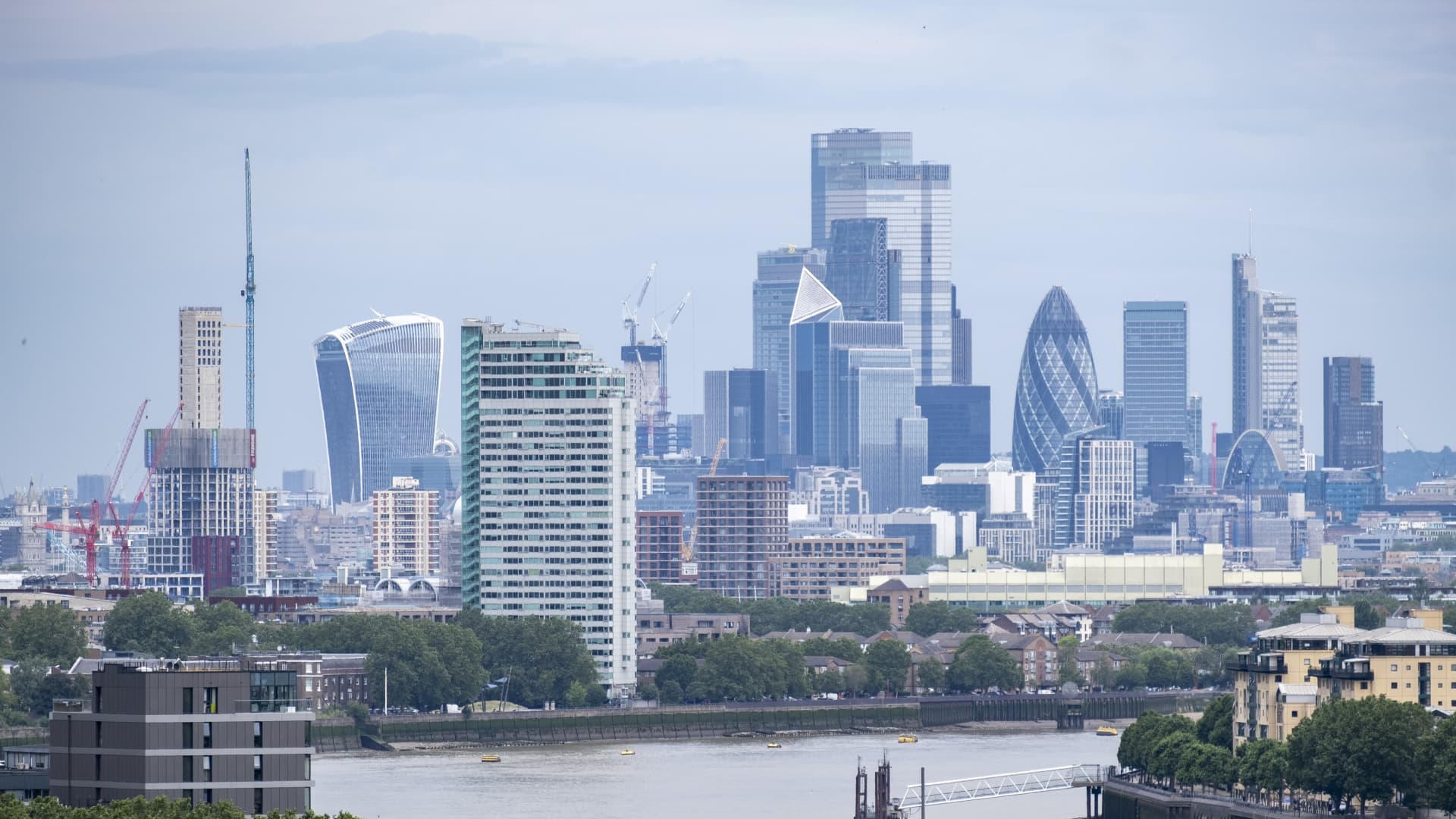Skyline view of the City of London financial district.
Mike Kemp | In Pictures | Getty Images
The second quarter saw a better-than-expected performance from the U.K. economy, with a 0.2% growth spurred by consumer spending and increased manufacturing output, according to the Office for National Statistics. This outperformed economists’ predictions of zero growth for the quarter, following a surprising 0.1% growth in the first quarter. The tight monetary policy and rising inflation, which had been anticipated to dampen demand, did not have a significant impact. In June, the economy expanded by 0.5% against a projected growth of 0.2%. However, the warm weather and the additional public holiday in May for the coronation of King Charles III contributed to this rise.
The manufacturing sector experienced a growth of 1.6% in the second quarter and production grew by 0.7%, while services saw a modest expansion of 0.1%. The Office for National Statistics highlighted the strong growth in household and government consumption despite facing price pressures. Chief Investment Officer for EMEA at Morningstar, Mike Coop, commented that though the numbers are still weak, they have exceeded expectations, continuing the recent trend of growth deviating from forecasts.
Coop further noted that it will take time for the effects of the U.K.’s tightening monetary policies to be fully realized. Meanwhile, the Bank of England revised its forecast for a U.K. recession in May and its most recent monetary policy report expects quarterly GDP growth to remain around 0.2% in the near term. U.K. Finance Minister Jeremy Hunt expressed optimism, stating that if the country adheres to its plan to boost employment and business investment, the International Monetary Fund predicts faster growth compared to Germany, France, and Italy.
The Bank of England’s decision to raise interest rates by a quarter percentage point to 5.25% in August, coupled with persistently high U.K. inflation of 7.9%, has led to speculation about the potential impact on the economy. The bank will closely monitor the latest GDP figures in preparation for its September meeting. Capital Economics’ Deputy Chief U.K. Economist Ruth Gregory expects a mild recession for the U.K. later this year due to the effects of higher interest rates.
Gregory also mentioned that while there are expectations of a further increase in interest rates to 5.50% in September, the consensus and investors may not see rates rise as high as the initially anticipated 5.75-6.00%.
Correction: This story has been updated to reflect that U.K. GDP contracted by 0.1% in May.
Denial of responsibility! VigourTimes is an automatic aggregator of Global media. In each content, the hyperlink to the primary source is specified. All trademarks belong to their rightful owners, and all materials to their authors. For any complaint, please reach us at – [email protected]. We will take necessary action within 24 hours.


